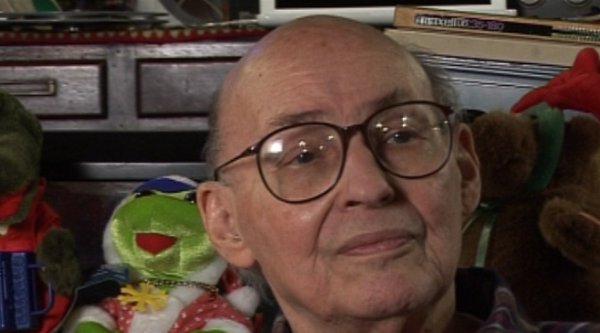NEXT STORY

Intelligence tests
RELATED STORIES

NEXT STORY

Intelligence tests
RELATED STORIES


|
Views | Duration | |
|---|---|---|---|
| 101. New philosophy and the historians of thought | 1 | 1642 | 01:32 |
| 102. Finding out the true scientific answer | 1 | 1573 | 01:36 |
| 103. The ghosts of Andrew Gleason and Warren McCulloch | 1639 | 02:28 | |
| 104. Andrew Gleason's help to me as a student | 1605 | 03:10 | |
| 105. Is being smart an accident? | 1 | 1840 | 02:29 |
| 106. Intelligence tests | 1834 | 01:49 | |
| 107. Trying to stink out the school chemistry lab | 1390 | 03:35 | |
| 108. Having access to so many great scientists | 1653 | 01:55 | |
| 109. Pitirim Sorokin | 1452 | 02:06 | |
| 110. 'If my hands are closed, I can't imagine a piano piece' | 1428 | 03:15 |


Is this a thing that you need a special talent for or is it something that any child could do if somebody suggests it to them in the right… with a couple of examples of how to do it? Is there really a... do real people have a fixed level of intelligence or is it just the way the world is? Most people only discover 10 ways of thinking and other people just happen to discover oh, here’s the way you make a new way to think. So maybe being smart has just a couple of seeds that are a little different and it’s an accident that… that it gets evoked. I remember once when I was a child and I asked my father something and he said, 'Well I don't know, but I’ll find out.' And I had this image that... this… this expression, find out. And I imagined that when he went to work – whatever that is – in the day that there was some kind of place that he was and it had… it had a dungeon, like a well. Or maybe it was a library, but it’s underground. And if there’s something you want to know, you go down there and there’s a book that has the answer. So, finding out... I had this image that there was this... there was a particular thing you did that nobody had told me how to do. Of course, later was the problem... all these adults. Why don't they… why can’t they find things out? It was like that… that incident of building the 20ft high, or whatever it was, Tinkertoy tower. And the adults would come by in this lobby and say: 'How could a little child build something so big?' And I remember that my thought was, how could someone so big not understand that all you have to do is keep adding to it?
Marvin Minsky (1927-2016) was one of the pioneers of the field of Artificial Intelligence, founding the MIT AI lab in 1970. He also made many contributions to the fields of mathematics, cognitive psychology, robotics, optics and computational linguistics. Since the 1950s, he had been attempting to define and explain human cognition, the ideas of which can be found in his two books, The Emotion Machine and The Society of Mind. His many inventions include the first confocal scanning microscope, the first neural network simulator (SNARC) and the first LOGO 'turtle'.
Title: Is being smart an accident?
Listeners: Christopher Sykes
Christopher Sykes is a London-based television producer and director who has made a number of documentary films for BBC TV, Channel 4 and PBS.
Tags: Tinkertoy, intelligence
Duration: 2 minutes, 30 seconds
Date story recorded: 29-31 Jan 2011
Date story went live: 13 May 2011